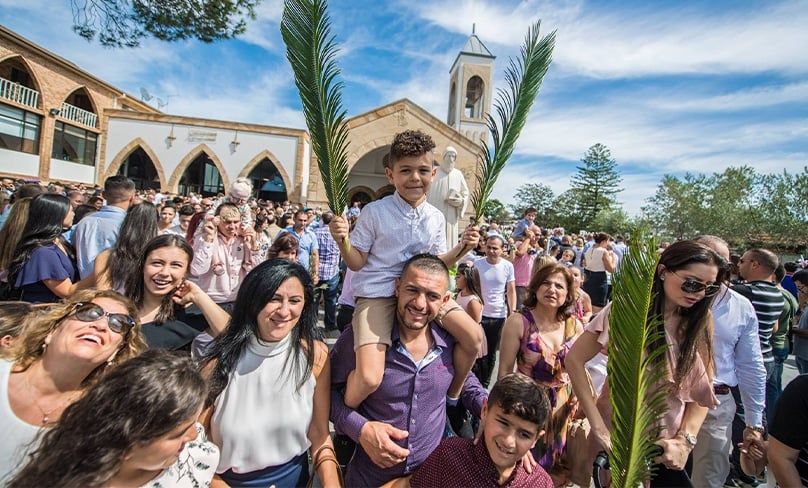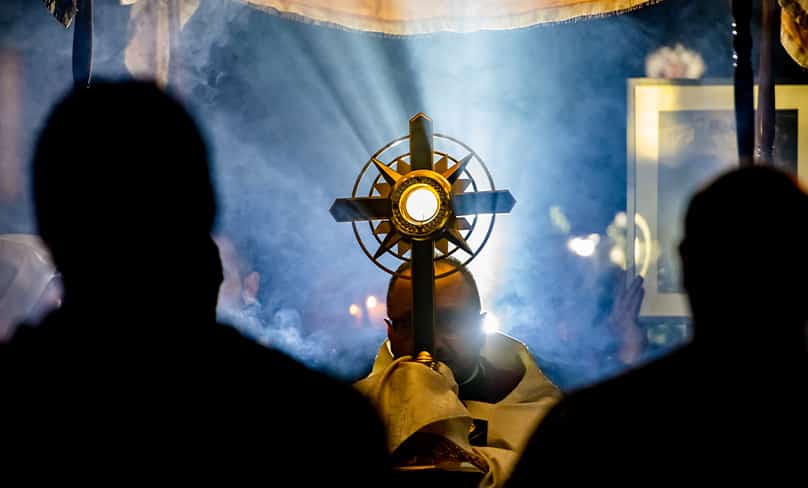
Some of my earliest memories are of Our Lady of Lebanon in Harris Park, where I would attend 9:30am English-language Mass with my family every Sunday, Fersan Al Adra (parish ministry for school aged children which translates to “Knights of Mary”) every Saturday, and visit for a quick prayer every morning before school, where staff and students were predominantly Maronite.
Having grown up in this bubble of mine, stepping out of my Maronite world and into the real world was a stark change—one I hadn’t expected, despite all the warnings I received.
Going into university, it took only days for me to realise just how much my Maronite identity had made me who I am, and how important it is to me. But what is Maronite identity? I argue that the answer is entirely subjective.
In Australia, I am only one of thousands of Maronites who have each had unique experiences making them into the people they are. It is difficult to define Maronite identity when it is something that runs deep, something our grandparents passed onto our parents—which has now been given to us and will continue to live on.
Maronite identity is embedded into the core of each one of us, and is sometimes as simple as the actions we do almost absentmindedly.
My Maronite identity is doing the Sign of the Cross before every meal and car ride, or before putting food in the oven. It is deliberately taking longer routes so I can pass by whichever Maronite church is on my way and say a quick prayer as I drive by.
It is as simple as saying “esmesalib” (in the name of the Cross) every time I see lightning, or every time something startles me. It is the rosary hanging off the rear-view mirror in my car and the miraculous medal I wear every day.
My Maronite identity is knowing that no challenge I face can’t be made easier by a visit to Our Lady of Lebanon, the church I grew up in, which has been a constant in my life from birth until now.

Over the years, I’ve come to realise that it goes even further. The Maronite community is dynamic, and it has the ability to stand together in the face of trials and tribulations, whether it be for a peaceful protest, a big procession or a rosary crusade. It is a community that celebrates together, prays together and grieves together. A credit to our Lebanese culture, which teaches us to stand strong—and perhaps a little stubborn—in times of both joy and adversity.
During the presentation of the offerings in the Maronite Divine Liturgy, the celebrant speaks the words, “Shower Your spiritual blessings upon them, and in place of their earthly gifts, grant them life and Your Kingdom.”
It sounds simple enough—disregarding what is worldly in favour of what comes from God, a core part of Catholicism in general and something which all Catholics strive towards. But it is exactly this that is deeply embedded in Maronite identity.
Many of Australia’s Maronites are here because our parents and grandparents left Lebanon seeking a peaceful life away from any war or instability, often leaving with nothing but the clothes on their backs and the rosaries in their hands, a symbol of our Marian devotion.
It is through their unwavering faith in God and the intercession of Mary that they were able to build lives and a future for their children. That faith forms the basis of our Maronite identity—resilience, reliance on God and complete trust in him no matter our path.
Maronite identity is different for everyone and unique to each individual. There are many who, like myself, grew up in the Maronite church and have never known anything else.
There are many who have found their way back after time away, and many who discovered it as an entirely new thing, whether it be through friends, family or other means.
Despite our different journeys and paths in life, our Maronite identity unites us because in its core, Maronite identity is the ability to find God in everything and rely on God even when we have nothing, knowing that what awaits us in the next life is better than anything we have now and better than anything we could possibly hope for in this one.
Vanessa Boumelhem is a former youth leader at St Raymond’s Maronite Parish and is in the final stages of a Bachelor of Communications (Writing and Publishing).
